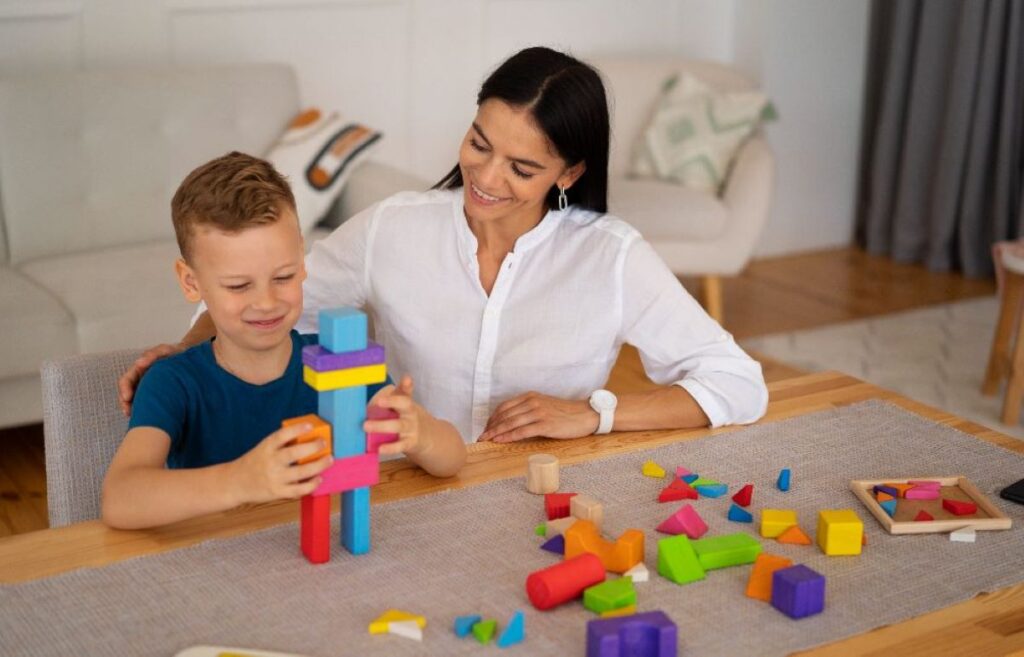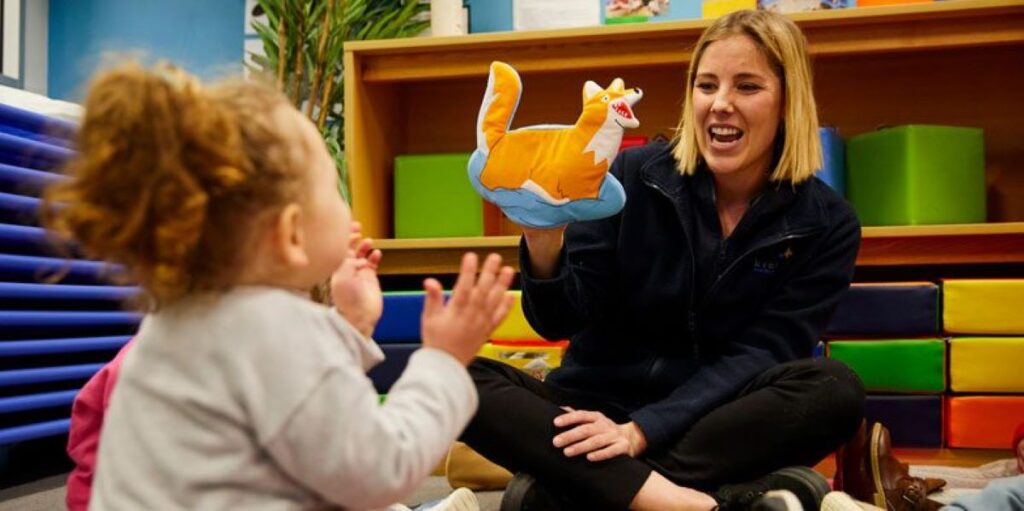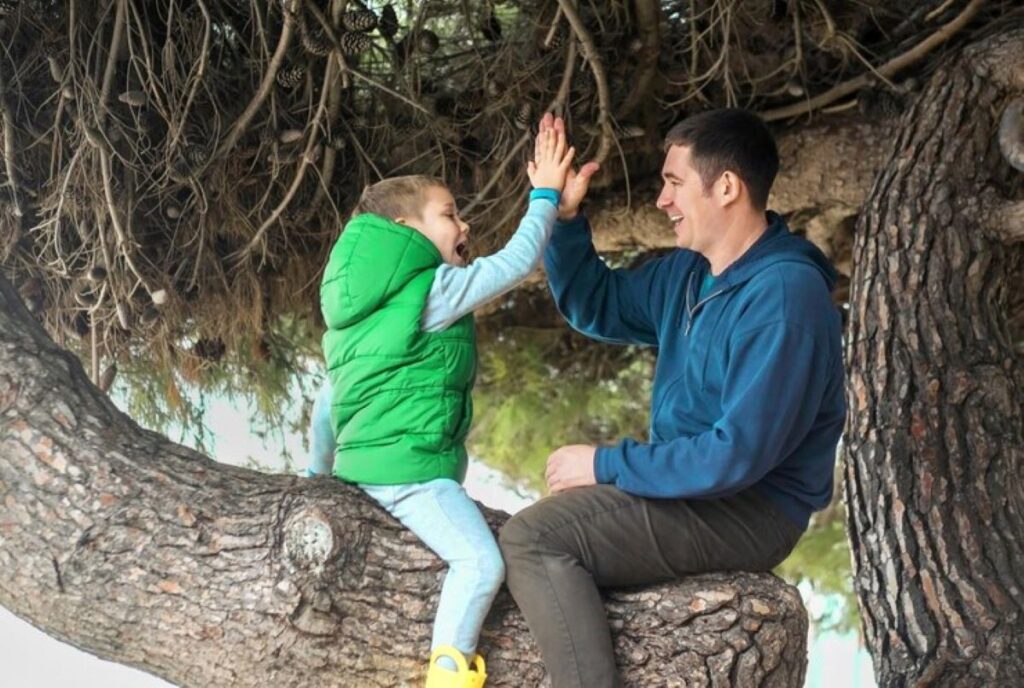Castle Hill Hand Therapy is dedicated to supporting children’s development through specialised upper limb care. Located in Sydney’s Hills District, we have the expertise to nurture young hands, wrists, elbows, and arms, helping each child reach their full potential.
Hand therapy is crucial for children’s growth and development. It enables them to grasp toys, learn to write, and master self-care skills. With strong hand function, children gain independence and confidence. Our skilled therapy team understands these important stages of development and provides personalised support tailored to each child’s needs.
In this guide, we will share our comprehensive approach to pediatric hand therapy at Castle Hill Hand Therapy:
- Therapeutic techniques designed specifically for different developmental stages
- Collaboration with other pediatric therapies
- Partnership with Stronger Together Foundation
- Support for neurodivergent children
- Family-centred care in natural environments
- Tracking progress and celebrating achievements
Through meaningful connections and expert support, we help children develop the essential skills required for daily activities, playtime, and learning experiences.
Understanding Pediatric Hand Therapy
Pediatric hand therapy focuses on developing and enhancing children’s upper limb function through specialised therapeutic interventions. This targeted approach addresses various aspects of hand and arm movement, strength, and coordination essential for a child’s daily activities.
Distinct Physical Challenges Faced by Children
Children face distinct physical challenges related to their upper limbs:
1. Fine Motor Skills
- Difficulty with pencil grip and handwriting
- Struggles with buttoning clothes or using utensils
- Challenges in manipulating small objects
2. Gross Motor Function
- Limited arm strength and coordination
- Restricted range of motion in shoulders or elbows
- Impaired hand-eye coordination
3. Developmental Concerns
- Delayed milestone achievement
- Muscle weakness or tightness
- Sensory processing differences
Supporting Independence through Hand Therapy
Hand therapy supports children’s independence through engaging activities designed to strengthen these skills. A child’s ability to participate in school tasks, self-care routines, and playtime activities improves significantly with targeted therapeutic intervention.
Common Therapeutic Activities in Pediatric Hand Therapy
Common therapeutic activities include:
- Play-based exercises to build hand strength
- Activities to enhance finger dexterity
- Tasks that promote bilateral coordination
- Exercises focusing on proper grip patterns
- Games that develop visual-motor integration
These interventions create meaningful improvements in a child’s ability to engage in essential daily activities, from drawing and crafting to dressing independently and participating in sports.
The Role of Castle Hill Hand Therapy in Child Development
Castle Hill Hand Therapy creates individualised treatment plans tailored to each child’s unique needs and developmental stage. The skilled therapy team specialises in:
- Fine motor skill enhancement through play-based activities
- Hand-eye coordination development using age-appropriate tools
- Grip strength building with engaging therapeutic exercises
- Sensory integration techniques for improved hand awareness
The practice addresses a range of congenital conditions affecting upper limb mobility, including:
- Cerebral palsy
- Developmental coordination disorder
- Brachial plexus injuries
- Birth-related hand differences
Children receive support to build functional independence through:
- Custom splinting and adaptive equipment recommendations
- Therapeutic activities that mirror daily tasks
- Strength-building exercises disguised as games
- Regular progress monitoring and plan adjustments
The therapy team incorporates evidence-based techniques to enhance:
- Writing readiness skills
- Self-care abilities
- Playground participation
- Sports engagement
- Creative expression through art and craft
Castle Hill Hand Therapy’s child-centred approach focuses on building confidence alongside physical skills, creating positive therapy experiences that encourage active participation and sustained engagement in treatment activities.
Integration with Broader Pediatric Therapies
Hand therapy at Castle Hill Hand Therapy operates as part of an integrated approach to child development. The service works in harmony with occupational therapy and physical therapy to create comprehensive support for children’s developmental needs.
Collaborative Care Approach
- Joint therapy sessions with occupational therapists to address daily living skills
- Coordinated treatment plans with physical therapists for gross motor development
- Shared goal-setting across disciplines to maximise therapeutic outcomes

Hand therapy enhances the effectiveness of other therapeutic interventions through:
- Fine motor skill development supporting occupational therapy goals
- Upper limb strengthening complementing physical therapy exercises
- Sensory integration activities aligned with occupational therapy strategies
The routine-based support model integrates therapy into natural daily activities:
- Morning routines like dressing and personal care
- School-based activities including writing and craft
- Play-based interventions during social interactions
Family-centred care forms the foundation of this integrated approach:
- Parents receive training to support therapy goals at home
- Regular communication between all therapy providers
- Coordinated progress tracking across different therapeutic domains
This collaborative framework ensures each child receives targeted support across all areas of development, with hand therapy playing a crucial role in enhancing functional independence and skill acquisition.
Stronger Together Foundation (STF) Partnership and Support Services
The Stronger Together Foundation stands as a dedicated partner in supporting neurodivergent children’s developmental journeys. STF specializes in creating nurturing environments for children aged 6 months to 10 years, recognising each child’s unique strengths and abilities.
Castle Hill Hand Therapy’s partnership with STF enables access to comprehensive support through multiple funding pathways:
- NDIS Plans: Registered provider status allows direct billing through NDIS-managed plans
- Private Health Insurance: Coverage available through select insurance providers
- Medicare: Eligible services through Enhanced Primary Care plans
- Private Funding: Direct payment options for families
STF’s community inclusion model creates meaningful connections beyond therapy sessions. Children engage in skill development activities alongside peers, building social confidence whilst working on hand therapy goals. This integrated approach helps children:
- Build lasting friendships through shared activities
- Practice new skills in natural social settings
- Develop independence through peer interaction
- Experience success in group environments
Family collaboration remains central to STF’s therapeutic approach. Parents and carers receive practical strategies to support their child’s development at home. Regular feedback sessions ensure therapy goals align with family priorities and celebrate each child’s progress within their support network.
In addition to hand therapy, the partnership also opens doors for other specialised services offered by STF, such as Speech Therapy which aims to maximise your child’s skills and ability to communicate and interact socially, and Occupational Therapy that supports your child’s development and independence through engaging them in everyday, meaningful activities. The partnership between Castle Hill Hand Therapy and STF creates opportunities for children to receive specialised hand therapy within a broader framework of developmental support, fostering both physical skills and social connections.
Specialized Expertise for Neurodivergent Children
Castle Hill Hand Therapy’s skilled practitioners have extensive experience supporting neurodivergent children through specialised upper limb interventions. The therapy team has advanced training in ASD support, ADHD interventions, and sensory integration approaches, allowing them to provide tailored care that respects each child’s unique needs.
Sensory-Informed Hand Therapy
- Custom-designed environments with adjustable lighting and minimal distractions
- Therapeutic tools selected for individual sensory preferences
- Flexible session pacing aligned with each child’s processing needs
- Quiet spaces available for regulation and comfort
The practice follows the principles of Positive Behaviour Support, recognising and building upon children’s natural strengths and interests. This approach creates engaging therapy experiences through:
- Interest-based activities that develop fine motor skills
- Visual supports and clear communication strategies
- Predictable session routines that promote security
- Celebration of each child’s unique abilities and progress
Therapists work closely with families to understand sensory triggers and preferences, incorporating these insights into treatment planning. This collaborative process ensures therapy sessions remain productive and enjoyable while supporting developmental goals.
The team’s specialist knowledge includes managing complex sensory profiles, motor planning challenges, and coordination difficulties common in neurodivergent children. Regular professional development keeps practitioners up-to-date with emerging evidence-based practices in neurodevelopmental therapy.
Therapy Settings and Accessibility
Castle Hill Hand Therapy delivers support services across diverse settings to meet each child’s unique needs. The practice brings specialised hand therapy directly to families through:
- Home-based sessions – allowing children to develop skills in familiar surroundings
- Childcare centre visits – supporting integration of therapy techniques into daily routines
- School-based programs – collaborating with teachers to enhance classroom participation
- STF facility appointments – accessing purpose-designed therapy spaces and equipment
Natural environment therapy creates meaningful learning opportunities by incorporating real-life situations. A child practising buttoning skills at home or using scissors during craft time at preschool develops practical abilities within authentic contexts.
The service footprint spans key regions across Greater Sydney:
- Hills District
- North Shore
- Hawkesbury
- Inner West
- Greater Western Sydney
This broad geographic coverage enables consistent access to hand therapy support. Mobile therapy services eliminate transport barriers for families, while flexible scheduling accommodates work and school commitments.
The practice maintains strong connections with local community services, creating seamless referral pathways between allied health providers, educators, and support workers. This integrated approach ensures children receive coordinated care within their established routines and familiar environments.

Family-Centred Approach to Therapy
Castle Hill Hand Therapy recognises families as essential partners in their child’s developmental journey. Parents and carers hold invaluable insights into their child’s daily routines, preferences, and challenges.
The therapy team implements collaborative goal setting through:
- Regular family meetings to establish meaningful objectives
- Shared decision-making about therapy activities
- Flexible scheduling that accommodates family routines
- Documentation of progress that families can easily understand and track
Parents and carers receive practical tools to support their child’s development:
- Home activity programmes tailored to daily routines
- Visual guides demonstrating therapeutic techniques
- Sensory strategies for managing challenging situations
- Play-based activities that build hand skills naturally
Strong partnerships extend beyond the immediate family to include:
- Regular updates with educators about classroom strategies
- Communication with support workers to maintain consistency
- Integration of therapy goals into different environments
- Shared progress reports across the support network
This collaborative approach creates a supportive ecosystem where children can practice and strengthen their skills across multiple settings. The therapy team provides ongoing guidance, adjusting strategies based on family feedback and changing needs.
Parents and carers gain confidence in supporting their child’s development through hands-on involvement and clear communication channels with their therapy team. This empowerment leads to more sustainable outcomes as families implement therapeutic strategies independently in daily life.
Measuring Meaningful Progress in Child Development
Castle Hill Hand Therapy uses comprehensive assessment tools to track each child’s developmental journey. The skilled therapy team uses standardised evaluations alongside personalised observation methods to capture progress in fine motor skills, hand strength, and coordination.
Key progress indicators include:
- Functional Skills Assessment: Tracking improvements in daily activities like buttoning clothes, using utensils, or managing school supplies
- Play-Based Observations: Monitoring engagement and skill development through age-appropriate play activities
- Visual Motor Integration: Measuring progress in hand-eye coordination through drawing, cutting, and crafting tasks
- Strength and Dexterity: Recording gains in grip strength, finger control, and manipulation abilities
The therapy team focuses on identifying and building upon each child’s unique strengths. This strengths-based approach celebrates achievements both big and small:
- A child learning to zip their jacket independently
- Mastering a new pencil grip for improved handwriting
- Successfully completing a challenging puzzle
- Participating confidently in playground activities
Regular progress documentation helps families and therapists adjust goals and strategies as needed. Through detailed assessment records, Castle Hill Hand Therapy creates visual representations of developmental gains, reinforcing positive growth and highlighting areas where children excel.
The team understands that progress looks different for each child. Customised milestone tracking ensures meaningful achievements are acknowledged and celebrated within the context of individual capabilities and aspirations.
Differentiators of Castle Hill Hand Therapy Services
Castle Hill Hand Therapy stands apart through its distinctive holistic approach to hand therapy, integrating real-life settings into each therapeutic intervention. The practice’s commitment extends beyond traditional clinical environments, bringing therapy directly into children’s natural spaces:
Contextualised Support
- Therapy sessions conducted in familiar environments
- Skills practice during daily routines
- Integration of therapeutic activities into play
The practice’s routine-based support model creates meaningful connections between therapy goals and daily life. This approach helps children develop practical skills through:
- Personalised activity modifications
- Custom-designed home programs
- Regular progress tracking in natural settings
Castle Hill Hand Therapy’s dedication to inclusive communication sets new standards in family engagement. The practice uses strength-based language that celebrates each child’s unique abilities and potential. This approach differs from traditional clinical terminology, creating a supportive environment where families feel understood and valued.
Multidisciplinary collaboration forms another cornerstone of the practice’s distinctive approach. The team works seamlessly with:
- Speech pathologists
- Occupational therapists
- Physical therapists
- Educational professionals
This integrated service delivery ensures comprehensive support for each child’s developmental journey, positioning Castle Hill Hand Therapy as a leader in paediatric hand therapy services across Greater Sydney. Check out more about Early Childhood Occupational Therapy: Helping Kids Thrive in Castle Hill
Accessing Castle Hill Hand Therapy Services: A Guide for Families
Starting hand therapy services involves a straightforward process designed to support families at every step. Families can initiate services through:
1. Direct Referral Pathways
- GP or paediatrician referral
- Early childhood educator recommendations
- Self-referral for private consultations
2. NDIS Registration Benefits
Castle Hill Hand Therapy maintains full NDIS registration status with specialised Early Childhood Early Intervention expertise. This enables direct billing through NDIS plans for eligible children requiring developmental support.
3. Funding Options Available:
- NDIS plans – comprehensive therapy coverage
- Medicare rebates through Enhanced Primary Care plans
- Private health insurance claims
- Fee-for-service arrangements
The initial consultation includes a thorough assessment of the child’s needs, establishing therapy goals, and creating an individualised treatment plan. Families receive detailed information about session frequency, duration, and specific interventions tailored to their child’s developmental requirements.
Castle Hill Hand Therapy’s administrative team assists with paperwork, funding applications, and scheduling to ensure a seamless start to therapy services.
Conclusion
Early intervention creates lasting positive impacts on children’s developmental journeys. Castle Hill Hand Therapy’s skilled team stands ready to support families through specialised upper limb care that enhances daily living skills and independence.
The practice’s commitment to meaningful progress shines through:

- Family-centred care in natural settings
- Individualised support for each child’s unique needs
- Community collaboration with schools and support networks
- Evidence-based interventions delivered with warmth and understanding
Every child deserves the opportunity to reach their full potential. Through dedicated hand therapy support, children can build the foundational skills needed for writing, play, self-care and social connection.
